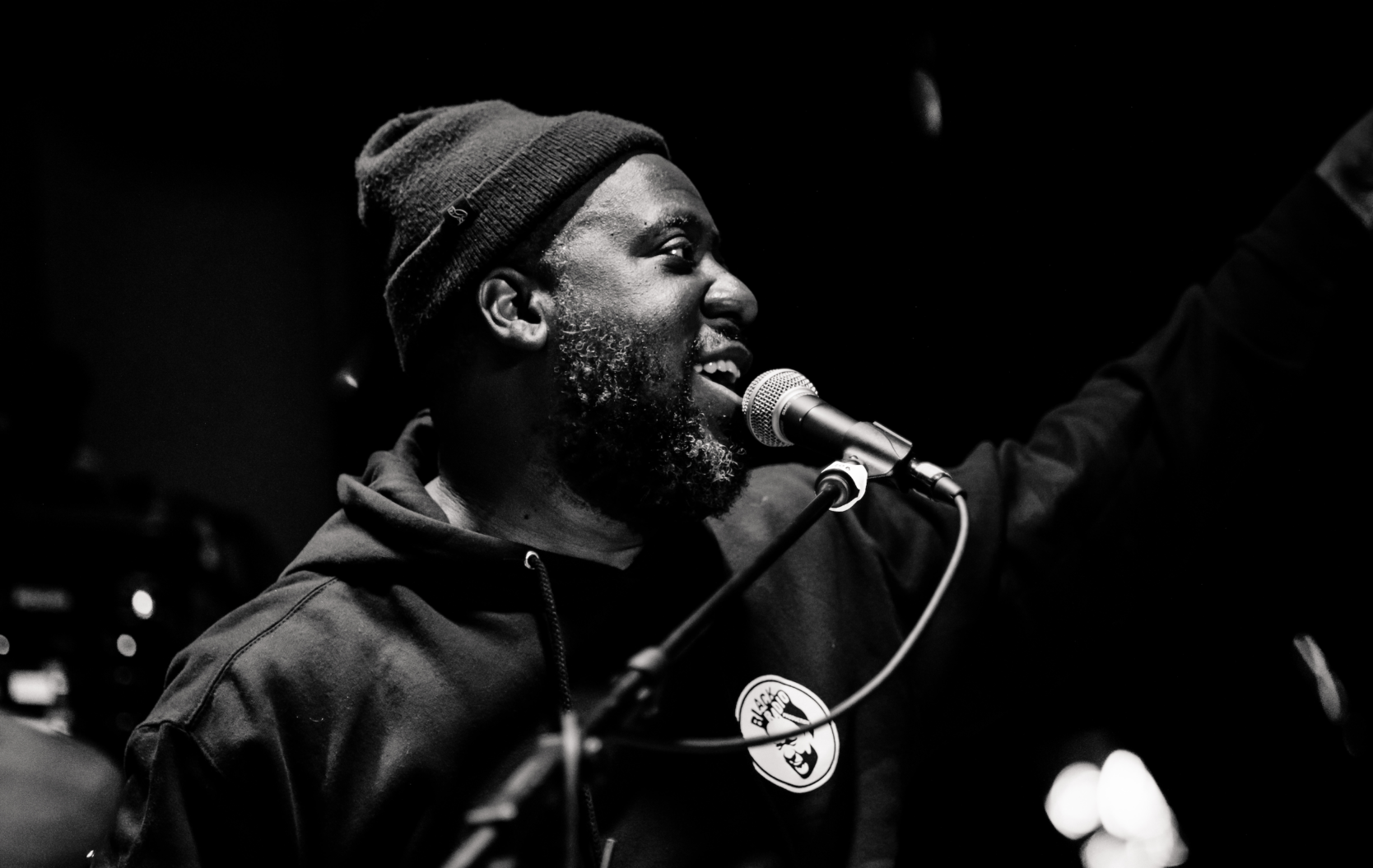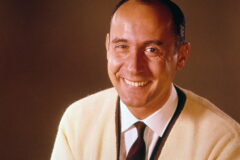When the world around him is buzzing with the chaos of guest list requests, soundchecks, and learning an umpteen number of songs old and new, revered pianist Robert Glasper knows he can always find some proverbial peace and quiet on the live stage. There, he can fully submit to the soul-restoring elixir of performance and improvisation, attributes which have been on prominent display during his now-annual Robtober residencies at the legendary Blue Note jazz club in New York’s Greenwich Village neighborhood.
From Oct. 4-Nov. 5, Glasper played 48 shows in 24 nights, including four sets across two nights at the nearby, Blue Note-owned Sony Hall with Yasiin Bey (the artist formerly known as Mos Def). Three nights served as tributes to jazz great and Glasper mentor Herbie Hancock, while others featured rotating bands staffed by storied performers such as Thundercat, Common, Terrace Martin, the Who/D’Angelo bassist Pino Palladino, drummer Chris “Daddy” Dave, and singer Lalah Hathaway. Numerous surprise guests also made their mark, from comedian Dave Chappelle to Ghostface Killah and Miguel.
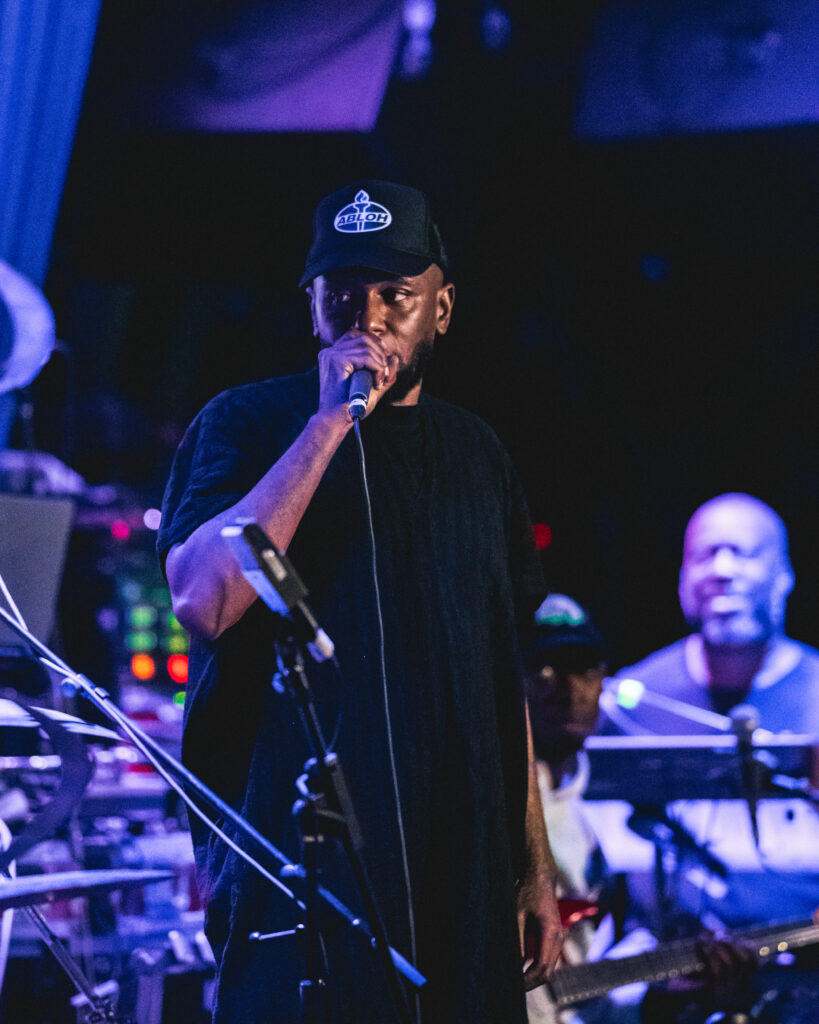
No two sets were the same, resulting in a dizzying array of sounds and styles. At the late-night show on Halloween, Glasper, Thundercat, and the other musicians emerged in full Ghostbusters costumes (or, “your favorite trash company,” Glasper joked) before touching on a nearly unrecognizable cover of Nirvana’s “Smells Like Teen Spirit” and highlights from the 2022 album Black Radio III, which is up for Best R&B Album and Best Engineered Album, Non Classical at February’s Grammy awards. Later, rapper Rapsody emerged unannounced to revisit Nas’ “The World Is Yours,” and gamely freestyled about Halloween-appropriate ghosts and goblins at Glasper’s urging.
Glasper jumped on the phone with SPIN after wrapping his Blue Note residency to discuss a wide range of subjects, from the pros and cons of playing for a month in one location to the emergence of young voices in jazz, plus updates on his work with Hancock and on the score for HBO’s 1980s-era Los Angeles Lakers miniseries Winning Time.
SPIN: Are residences like what you’ve been doing at Blue Note a potential saving grace for artists at a time when touring is so challenging?
Robert Glasper: I tell people all the time that it’s like being on tour, without being on tour [Laughs]. If you can stand playing in the same place for a month, it’s great, and I can, because I change it up so much and I have so many different bands, guests, and situations, so I don’t get bored. I never know who is going to pop up on me, which keeps me on my toes. Because it’s in New York, I know within the month people will be coming in and out. Someone will hit me up and be like, ‘I just flew in to do an interview. Are you in New York doing Robtober? I’ll come through.’ That always makes it interesting. Another cool thing about it is that so many people from all over the world literally flew in. There was a family that flew in from Alaska just to see two shows — a husband, wife, and four kids.
How involved were you in choosing the thematic elements?
I put it together myself. It’s a blank canvas. I started thinking, ‘OK, what kind of configurations do I want to do? What guests do I want to feature in a way so that people will know they’re coming? Who can handle being at the Blue Note, which is a jazz club and small?’ I do two sets a night, and certain artists you’re not going to ask to do that. I have that in my mind: who do I know that I rock with artistically and are OK with doing two sets at a jazz club? That’s a different kind of monster. This year, I wanted to pay tribute to Herbie, because he’s still here. I did Chick Corea and Roy Hargrove tributes, but they’d already died. With Herbie, I wanted to do a tribute to one of my biggest heroes while he is alive.
Were there any particular highlights of the run, or weird things that happened?
I never know exactly when Dave Chappelle is popping up on me. He popped up twice. One night, he brought Chris Rock, Louis C.K., Q-Tip, RZA, and two or three other people. He rolled in and tapped me on the shoulder without telling me. He and Chris Rock introduced me for that set. Dave has done that before. A few weeks before, he literally sat on the steps while I played my whole set. We had a little banter here and there. After that, we went to an official afterparty for the residency, and he hosted it with me. Jill Scott pulled up on me, which has never happened before. We’ve always talked about it, but she’s always been busy. Miguel and Kim Burrell popped up too. It was really dope.
Did RZA get on stage with you?
No, because they came in-between sets to hang out in the dressing room. Then Dave was like, ‘yo, we’re going across the street to the comedy club.’ Trevor Noah came one time and Dave popped up that night, so the three of us went across the street. I played piano while Dave, Trevor Noah, and Michael Che told jokes. I did that for 45 minutes and was 15 minutes late for my gig across the street. I did a couple shows recently at Sony Hall with Mos Def. Ghostface came and sat in, but I didn’t even know he was coming until right before we went on stage. He eventually came up to the side of the stage and gave Mos some props. He spit a few bars of ‘C.R.E.E.M’ over one of the beats we were doing and of course, the crowd went wild.
Just as a side note: how amazing and improbable is it that in 2022, Black Star is the musical guest on Saturday Night Live, much less that they finally came out with another record?
Absolutely. It works because of Dave, and those are his guys. I think he made that happen when he was asked to be the host. Me and Dave did a Blue Note Napa Jazz Festival thing in July, and we had Black Star as a guest there too. It was incredible, and then to have Madlib DJing on SNL? Come on, bro!
Can you talk about your friendship with Herbie Hancock?
Herbie is the reason I’m able to do what I do. One thing he learned from Miles Davis was to hang around the young guys and get inspiration from them. Herbie did ‘Rockit’ when he was 43 years old, you know what I mean? He never stops growing and learning. He’s not a person that’s like, ‘I’m Herbie Hancock and I’ve done it all,’ which he certainly could do. He’s always a student. He taught me that you’re a person first and a musician second. We’ve hung out many times, and he’s come to at least four or five of my shows and jumped onstage to play hip-hop shit with me. I had the pleasure of doing some stuff on his new record. He was asking me about Kendrick’s To Pimp a Butterfly album, like he was a kid learning something new.
His record that you just mentioned has been in the works for so long that it’s almost becoming the Chinese Democracy of jazz.
[Laughs]. Exactly. I wish I had an answer for you. There have been so many people who have worked on it. Terrace Martin is the main producer on it and has brought so many amazing people through. I was there once when Pharrell came through. When it does come out, it’s definitely going to be a force to be reckoned with.
There were some moments during the Halloween show where your playing was really reminding me of Keith Jarrett’s solo concerts from the 1970s. What has his music meant to you as a piano player?
That’s crazy that you say that. Keith is in my top three, you know? He has an album called Still Live with his trio, and the opening song is ‘My Funny Valentine.’ I transcribed the whole solo piano intro when I was in 10th grade because it’s one of my favorite albums of all time. Keith has been one of my major influences for years and I’ve probably seen him live four or five times. His approach to music, and his touch … there’s only one. That specific trio fits together like glue. Gary Peacock was the only bass player who could be in that trio and make it work the way it worked.
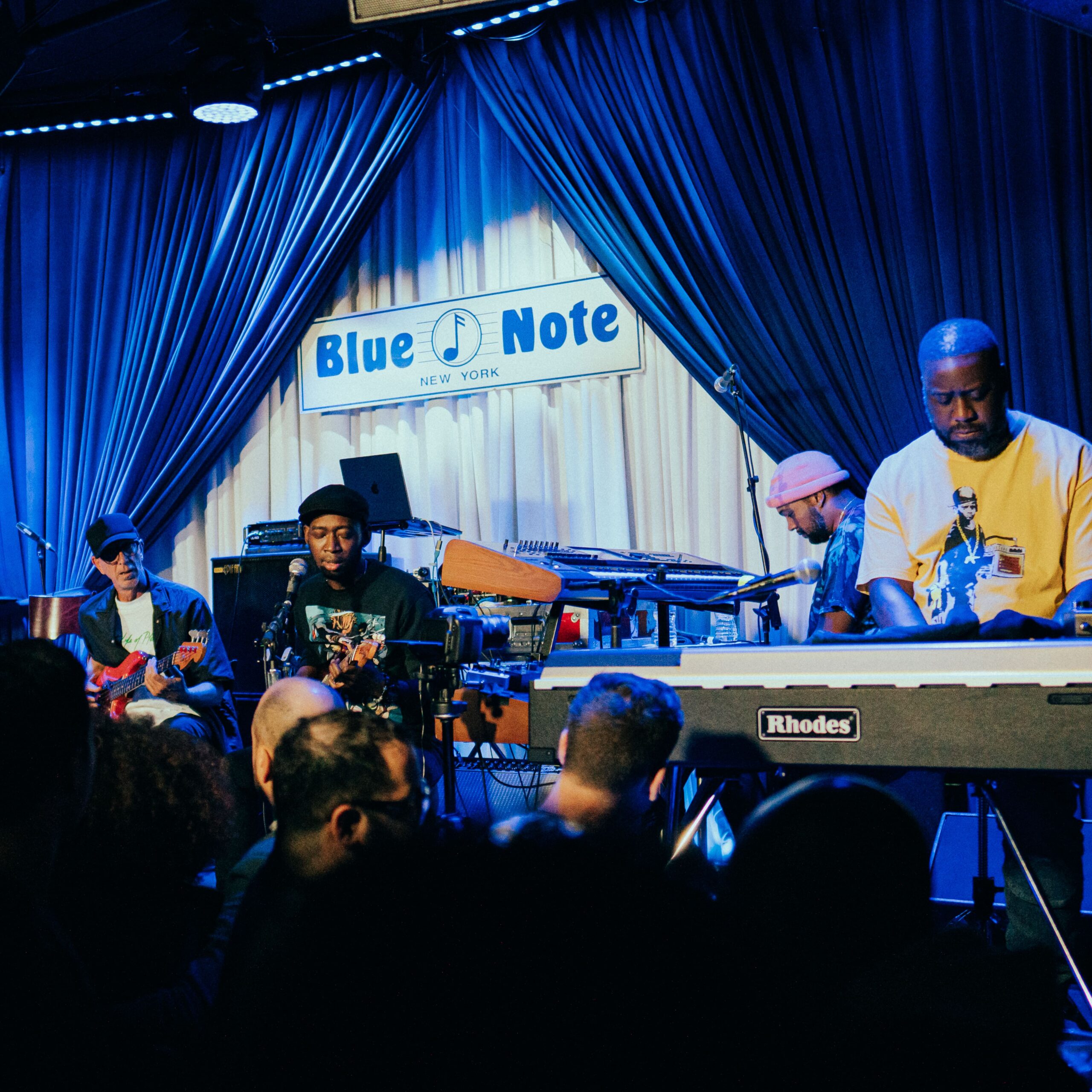
There’s been a noticeable influx lately of young voices in jazz, particularly DOMi and JD Beck. What do you think of this trend? Are you a fan of DOMi and JD?
I actually met DOMi at Berklee College of Music when I did a clinic there. She and JD sound like 2022. They’re supposed to be influencing the kids their age. A lot of jazz musicians are taught a certain way, like, ‘you have to learn this and that, and you can’t mix that with this.’ There’s so many rules. DOMi and JD are so young that they definitely don’t care about that. People are so much more receptive to jazz being mixed with other genres now. They’re so creative and their technique is crazy. They have open ears and respect the history, but they’re not held back by it. That’s what our heroes were doing. When you think of jazz musicians, you automatically think ‘old.’ People forget that all of our favorite jazz records were made by cats who were in their 20s.
Congratulations on the Grammy love for Black Radio III. Looking back, what has this series of albums meant to you?
When I look back on all of my records, especially the Black Radio stuff, I feel like they’re an honest representation of who I am and who is around me from my musical family. Most of the people I’m collaborating with have been in the mix since 2002. It’s not me making a phone call to someone I’ve never rocked with before and asking, ‘can you be on my album?’ I’ve been collaborating with Bilal since 1999. The year after that, I was working with Jazmine Sullivan. I don’t even think she was 20 then. That’s just who I am and who I will be. I can look back on my career and feel good about it because I never did anything I didn’t want to do or collaborate with anyone I didn’t want to collaborate with.
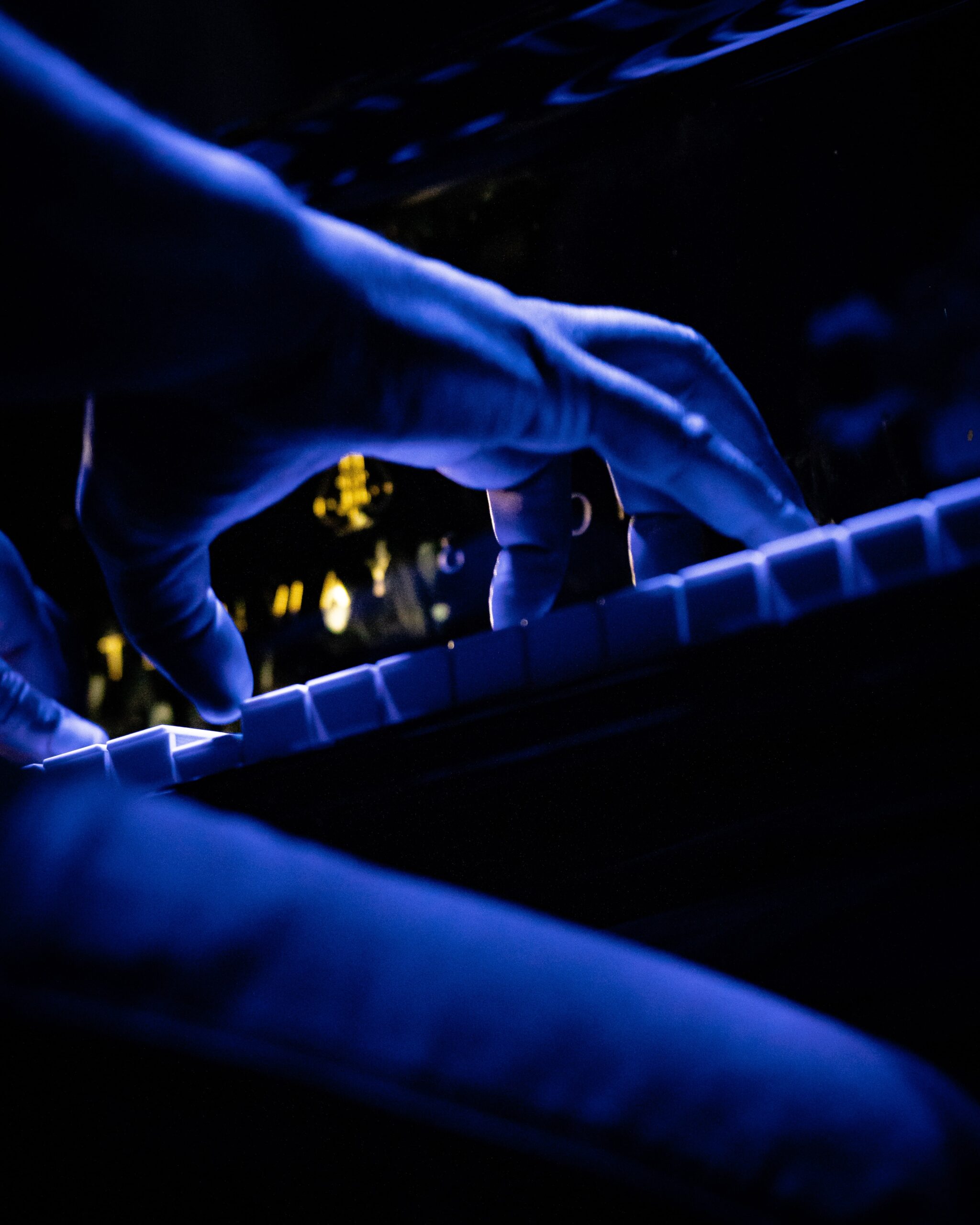
You helped score the HBO series Winning Time. What did you learn from that experience?
It was amazing. I’m a basketball fan, especially of the Lakers from the ‘80s because my dad was a huge Lakers fan. It was an honor to work with Nick Britell on that score. I was a fan beforehand and he brought me on to work on it. It was super cool to be next to him and watch him work. I gained another brother. I’m looking forward to season two, which I will be involved in for sure.
Is it fun to artificially constrain yourself to a certain era of music?
Yeah, it is! I don’t usually get a chance to do that, especially with a period of time that I like. We’re talking about the late ‘70s and early ‘80s, which is a funk/jazz fusion era. We had so much fun writing music for that and jamming to come up with stuff. That’s the stuff my parents checked out, so I grew up listening to it. I also just finished scoring a 10-episode series for Peacock with my friend Derrick Hodge based on the ‘90s movie The Best Man. It’s the original cast, 20 years later, so the time period is now. We didn’t have to go back in time for the music. I think it’s going to be great for the culture. You’re not gonna hear rappers like Lil’ So and So and Baby So and So [Laughs]. It’s the rappers that people in their 40s and 50s would listen to.
What does your 2023 look like beyond the tour dates you’ve already announced?
Man, I refuse to look at next year right now [Laughs]. I have to go a month at a time. Obviously, there are certain things I need to know about for the next month prior to them happening, so right now, I’m dealing with November but I’m looking at December. I haven’t really begun to look at next year beyond January, because I have to be in Japan and I’m bringing my family. Other than that, I can’t tell you past the Grammys in February [Laughs]. You have to understand — the residency is so much! It’s like having the biggest concert of your life every day. It’s a lot for my brain, and we haven’t even gotten to the music part. Once I’m on stage, that’s when I really can breathe, oddly enough. On stage is the break. Off stage is complete chaos every day of the residency.

